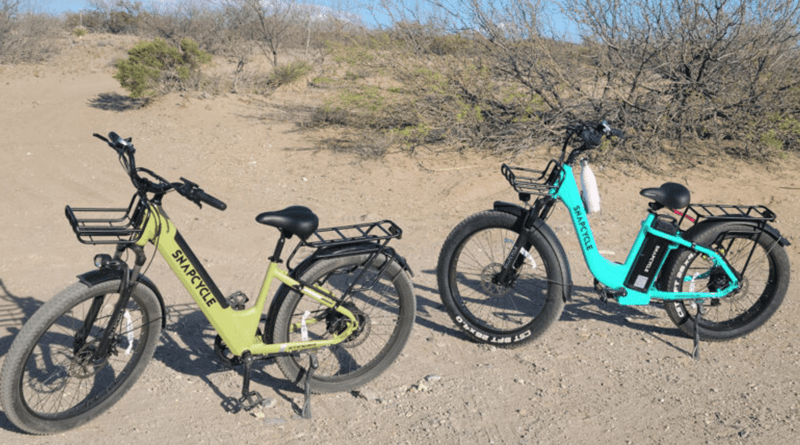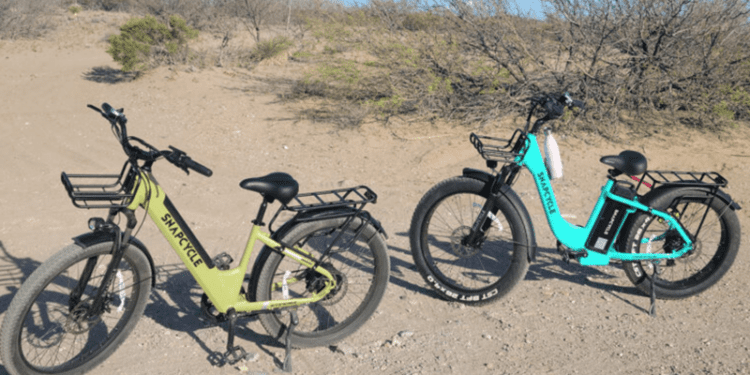

Sign up for daily news updates from CleanTechnica on email. Or follow us on Google News!
There are two big things that draw people to e-bikes: price and ease. An e-bike gives you some of the benefits of a car, like showing up to work without being sweaty, without anywhere near the cost of a car. While a great commuter bike goes for $2000+, that’s basically the only cost. There are no fuel costs, very little maintenance, and no insurance. Add in that an e-bike can often zip through and around traffic in cities, and for many people it’s the clear winner.
But, there’s always some Karen or other who can’t leave things alone. Streetsblog has a great post outlining some of the really dumb things that New Jersey is considering doing, and among them is a law that, if passed, would require insurance for micromobility, despite such insurance coverage having big legal problems (more on this later).
The bill, S2292, aims to force riders of e-bikes, scooters, and other micromobility to register their vehicles with the state and carry full insurance for injuries to themselves and to others. Even worse, it’s sponsored by the president of the state senate, and Streetsblog thinks its chances of passage are good.
But they also point out that crashes with e-bikes are pretty rare. Only 119 fatal crashes are on record between 2017 and 2021, which is less than a rounding error when there were almost 200,000 fatalities with cars in the same period.
Sadly, this isn’t New Jersey’s first rodeo with over-regulating micromobility. Class 3 bikes (those that can go up to 28 MPH) are already subject to a license requirement, while slower Class 1 and Class 2 bikes (up to 20 MPH) are unregulated along with kick scooters.
But the requirement for Class 3 bikes hasn’t really been implemented because it’s impractical. Without probable cause, it’s not legal to pull people over and check what class of bike they’re riding. Speeds that could be used to tell slower bikes and Class 3 apart just don’t happen very much on shared-use trails and sidewalks, as it doesn’t feel safe to go that speed in most situations, so cops really have nothing to legally go on.
The other problem is that insurance case law is immature in the area of micromobility insurance, leading most providers to sit it out. Streetsblog describes one case where an insurer is getting away with not covering a rider’s injuries because someone on micromobility is neither a driver nor a pedestrian under New Jersey law, so additional changes to the law would be needed for companies to even offer micromobility coverage.
Why This Is Bad All Around
While it looks reasonable on the surface to require registration and insurance, it’s really not.
First off, the physics for death and severe injury just aren’t there the way they are for cars. Cars often weigh over two tons, while an e-bike is usually under 100 pounds. The energy of a moving e-bike, even at 20+ MPH, just can’t do the kind of damage that a car can do to people and property. This is why fatalities involving e-bikes are so rare.
Second, insurance is small compared to the cost of a car, while it would likely be a much larger percentage of overall e-bike operation. Someone who already isn’t paying for gas and doesn’t have a car payment would suddenly have monthly costs for insurance and yearly costs for registration added to the budget. This would negate many of the cost benefits of micromobility in the first place.
This would lead to less adoption of the technology. The health, safety, and environmental benefits of e-bikes are both obvious and well established. So, the ultimate societal cost of fewer e-bikes is likely a lot higher than the cost of a rare accident happening on them.
Featured image by Jennifer Sensiba.
Have a tip for CleanTechnica? Want to advertise? Want to suggest a guest for our CleanTech Talk podcast? Contact us here.
Latest CleanTechnica TV Video
I don’t like paywalls. You don’t like paywalls. Who likes paywalls? Here at CleanTechnica, we implemented a limited paywall for a while, but it always felt wrong — and it was always tough to decide what we should put behind there. In theory, your most exclusive and best content goes behind a paywall. But then fewer people read it!! So, we’ve decided to completely nix paywalls here at CleanTechnica. But…
Thank you!
CleanTechnica uses affiliate links. See our policy here.





